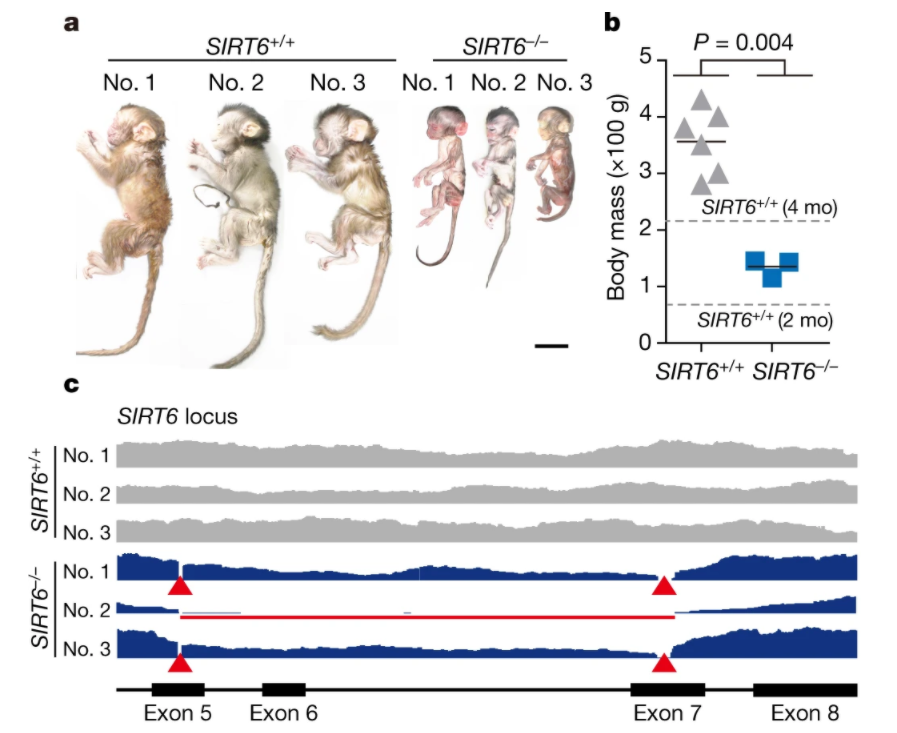SIRT6 deficiency results in developmental retardation in cynomolgus monkeys (SIRT6の欠損は、カニクイザルの発達遅滞の原因となる)
Zhang et al., 2018 Nature Published: 22 August 2018 https://rdcu.be/401m
Abstract
SIRT6 acts as a longevity protein in rodents1,2. However, its biological function in primates remains largely unknown. Here we generate a SIRT6-null cynomolgus monkey (Macaca fascicularis) model using a CRISPR–Cas9-based approach. SIRT6-deficient monkeys die hours after birth and exhibit severe prenatal developmental retardation. SIRT6 loss delays neuronal differentiation by transcriptionally activating the long non-coding RNA H19 (a developmental repressor), and we were able to recapitulate this process in a human neural progenitor cell differentiation system. SIRT6 deficiency results in histone hyperacetylation at the imprinting control region of H19, CTCF recruitment and upregulation of H19. Our results suggest that SIRT6 is involved in regulating development in non-human primates, and may provide mechanistic insight into human perinatal lethality syndrome.
中国科学院 生物物理研究所のZhangらは、CRISPR–Cas9 ゲノム編集技術を用いて、SIRT6 (SIRTUIN 6)のKOカニクイザルを作出し解析を行っている。SIRT6は、げっ歯類では細胞の老化に重要な役割を果たすが、ヒトを含めた霊長類での機能は不明だった。野生型カニクイザルの妊娠期間は約6ヶ月であり、SIRT6はノンコーディングRNAのH19の発現を抑制している。SIRT6 KOサルは、胎生2-4か月齢の胎児のサイズで生まれ(胚発生の遅滞)、生後数時間後に死亡する。この動物では、H19のimprinting control regionのヒストン高アセチル化が起きており、ニューロンの分化が遅れている(未成熟な神経幹細胞が多く観察される)。また脳サイズが小さく、未成熟な状態である。本研究結果からSIRT6は非ヒト霊長類において発生制御に関与することが示唆され、ヒトの周産期致死性症候群の理解に貢献すると考えられる。
2018年のNature論文。中国の遺伝子改変マカクザル研究の展開は驚くべき速度です。

